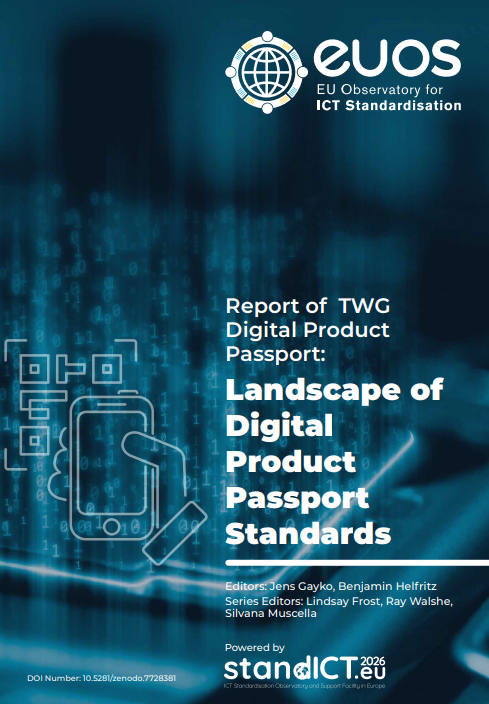Sustainability and digitization of industry and market are two major challenges in these times, driven in a variety of places. The upcoming Ecodesign for Sustainable Products Regulation (ESPR) addresses both. Regarding this, StandICT.eu was asked by the European Commission to prepare a landscape of standards in view of the need of Digital Product Passports (DPP). The created list covers now more than 200 open standards of international standards development organisations, which are made available or will be made available to the general public and are developed (or approved) and maintained via a collaborative and consensus driven process. In addition, the landscape of standards also includes initiatives on product circularity data, as harmonization and standardization facilitate the exchange and processing of information.The EC’s call is on creating a clear concept for the DPPs, defining a cross-sectoral product data model. The standards-based DPP will be aligned with the requirements of the ESPR, with an initial focus on the electronics, batteries, and textile sectors. The TWG DPP has specified their understanding of the seven areas of standardisation in more detail in the introduction (architectural overview of the DPP including an explanation).
The Landscape of Digital Product Passport Standards is thought as a contribution to the current discussion and should help the development of the subject matter by the EU Commission, the existing initiatives, such as the CIRPASS or Battery Passport Project, as well as the later treatment in the European Standardization Organizations CEN, CENELEC and ETSI. We are sure it will support a fruitful further development of the subject matter and thank the EU Commission and StandICT for the initiative.
Jens Gayko and Benjamin Helfritz
